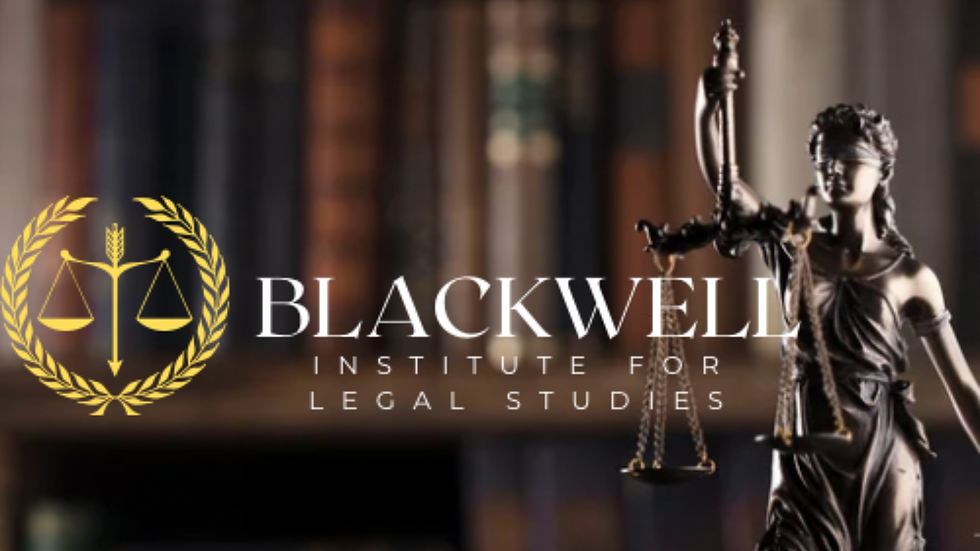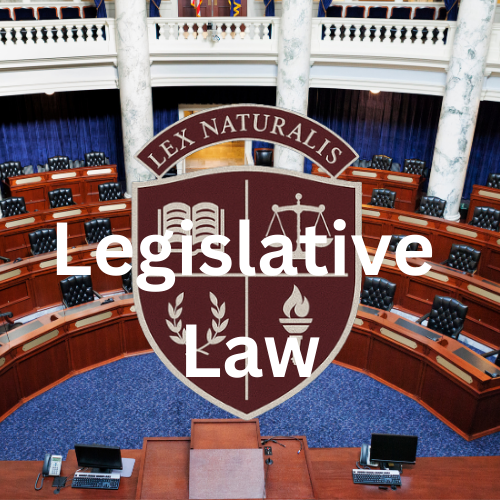A New Standard in Legal Education and Constitutional Renewal
- Dr. Byron Gillory
- Jul 19
- 2 min read

Introduction
The Blackwell Institute for Legal Studies (BILS) was not founded to replicate the existing model of legal education—it was founded to replace it. In an era where law schools have become credentialing mills and constitutional fidelity is a fading memory, BILS emerges as a principled, visionary, and strategically necessary alternative. It is not merely a school—it is a command post for legal and cultural restoration.
This paper outlines how BILS positions itself in the broader landscape of legal education, constitutional theory, and policy advocacy. It will clarify what BILS is, what it is not, and why it is indispensable in the post-constitutional moment we inhabit.
I. The Crisis in Legal Education
The American legal establishment is in decay. Modern law schools—particularly ABA-accredited institutions—have become indistinguishable from the ideological factories they once existed to challenge. Most law students graduate without any meaningful engagement with natural law, constitutional architecture, or moral reasoning. They are trained to pass the bar, not to understand the republic.
Legal education today produces technicians of process, not guardians of order. Students are taught that law evolves, that the Constitution is a "living document," and that legal authority is found in precedent rather than in principle. In the name of progress, they inherit the machinery of legal positivism, severed from the soul of law.
II. The Purpose of BILS
The Blackwell Institute exists as a countermeasure. It is not a reactionary institution—it is a revolutionary one. Its mission is not to critique the current system from the sidelines but to raise up scholars and strategists who will draft, defend, and deploy a renewed legal order rooted in the principles of liberty, natural law, and federal republicanism.
BILS awards the Academic Juris Doctor (J.D.) in Libertarian Jurisprudence, a rigorous, non-licensure degree in legal theory, constitutional design, and natural law. This credential is not designed to feed the bar exam. It is designed to form a legal intelligentsia capable of constructing the philosophical and institutional foundations of a post-statist legal culture.
III. What BILS Is (and Is Not)
BILS is not an ABA-accredited law school. It does not prepare students for bar licensure or court practice. It does not compromise with the regulatory orthodoxy of diversity, equity, inclusion, or progressive jurisprudence. It is not interested in producing associates for white-shoe law firms or federal judicial clerks.
BILS is an institute of higher legal education, legal philosophy, and constitutional formation. It produces constitutional scholars, legal philosophers, legislative drafters, and civilizational reformers. Its students do not seek admission to the system—they seek to out-think, outlast, and out-govern it.
IV. Integrating Legislative and Policy Advocacy
What truly elevates BILS above comparable institutions is its commitment to bridging theory with praxis. Unlike traditional law schools, which end their mission at graduation, or think tanks, which never credential their scholars, BILS equips its graduates to engage in strategic policy reform through legislative advocacy training.
BILS trains students to:
Draft model legislation rooted in natural law and enumerated constitutional powers
Advise state legislators and local governments on constitutional strategy
Work with advocacy organizations, freedom caucuses, and policy centers
Rebuild republicanism from the local and state level outward
This emphasis on legislative impact makes BILS unique. Where other institutions publish white papers, BILS writes the frameworks that become law.

Comments